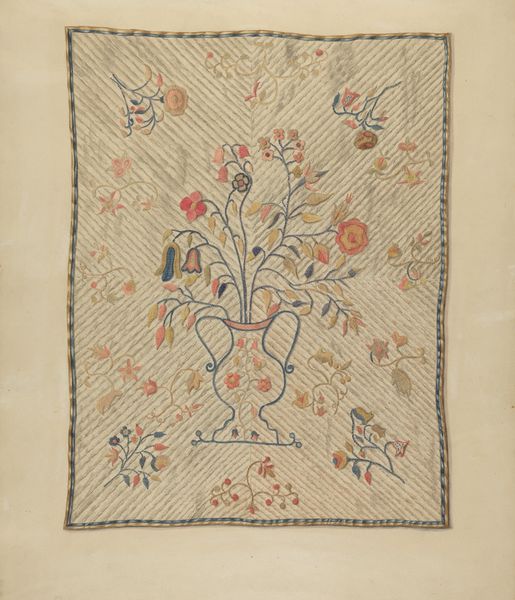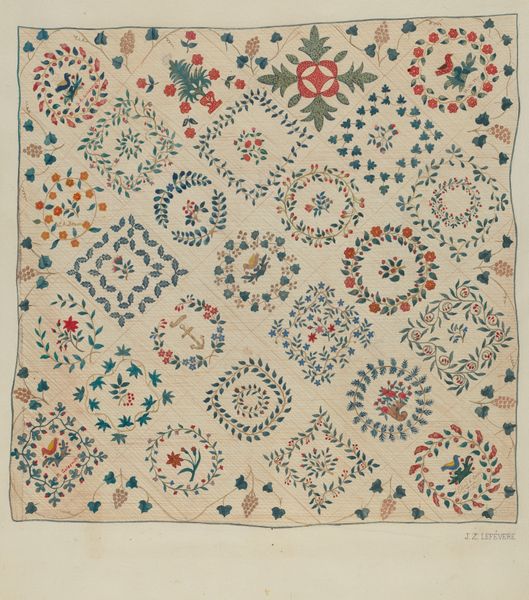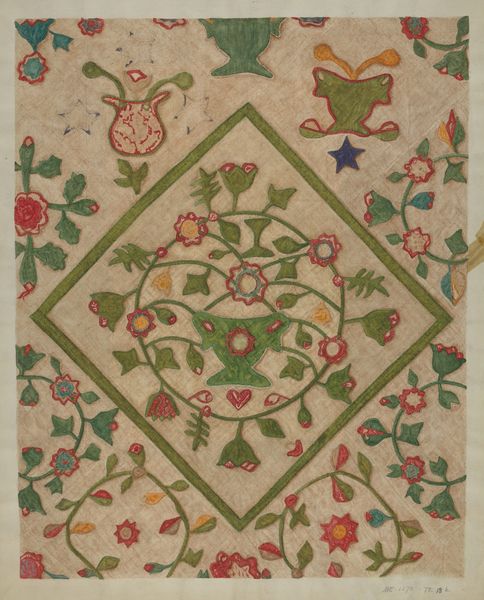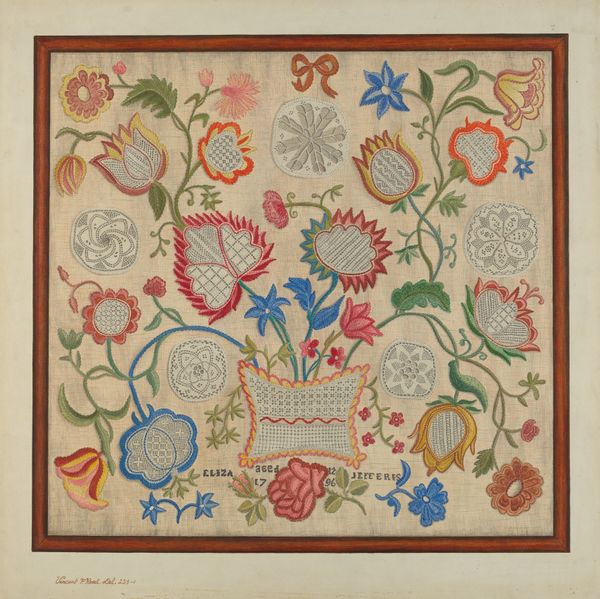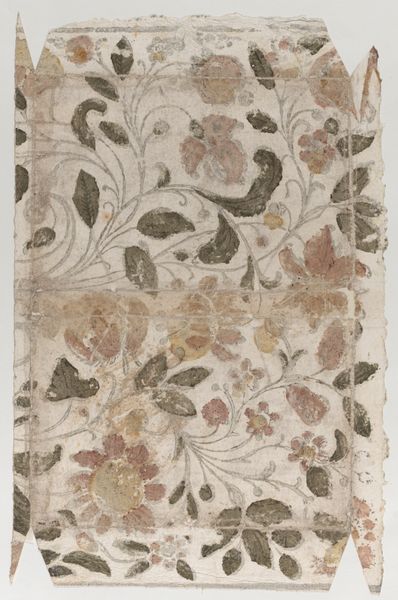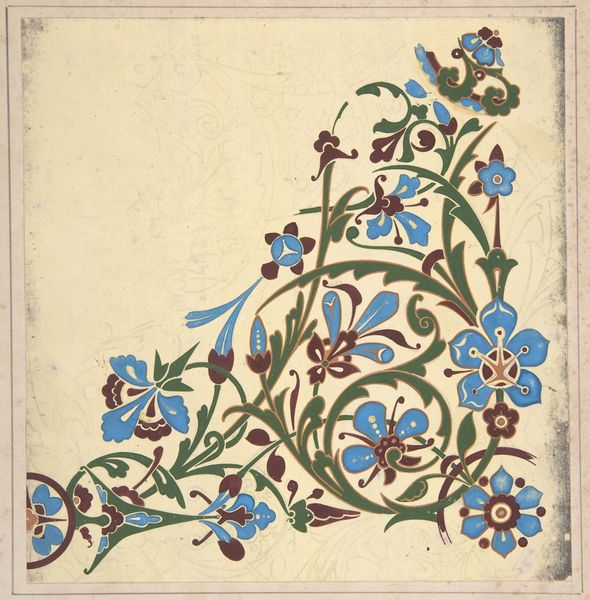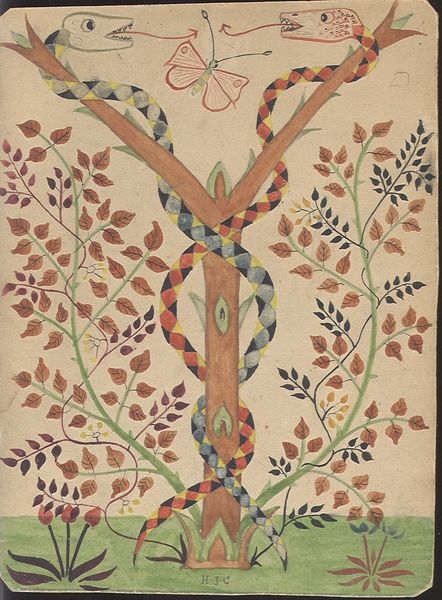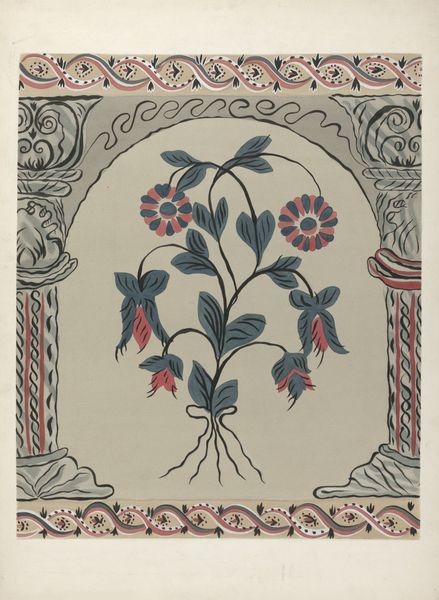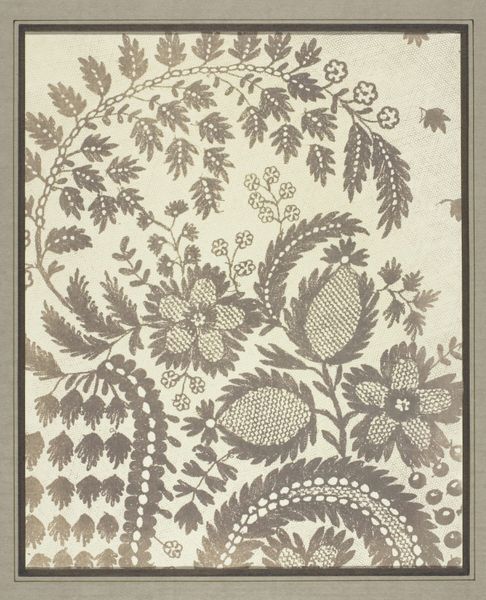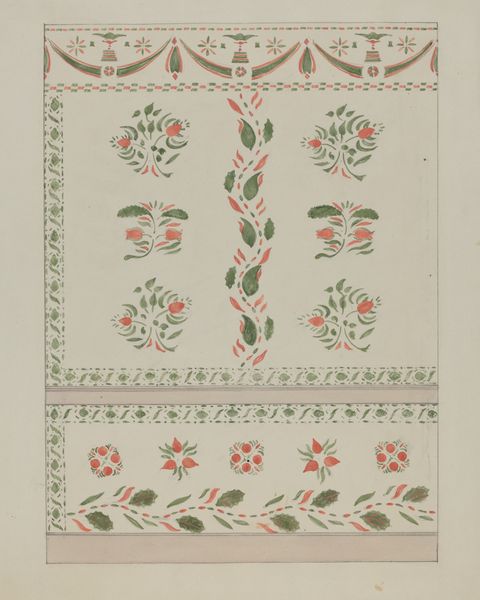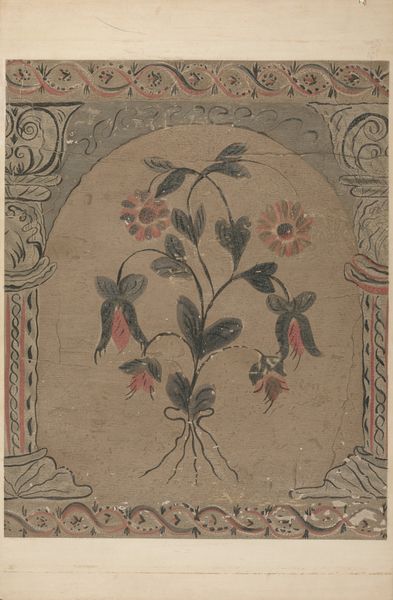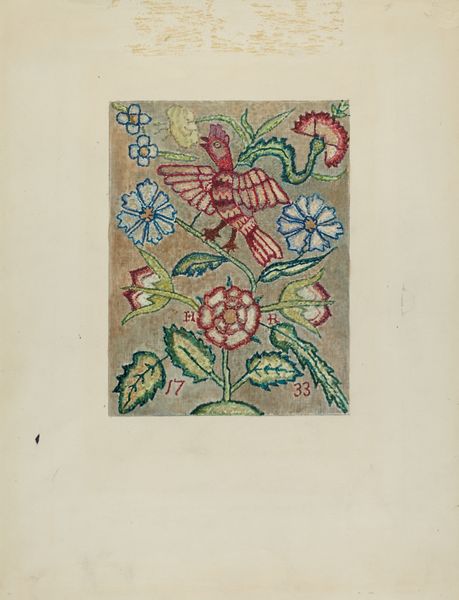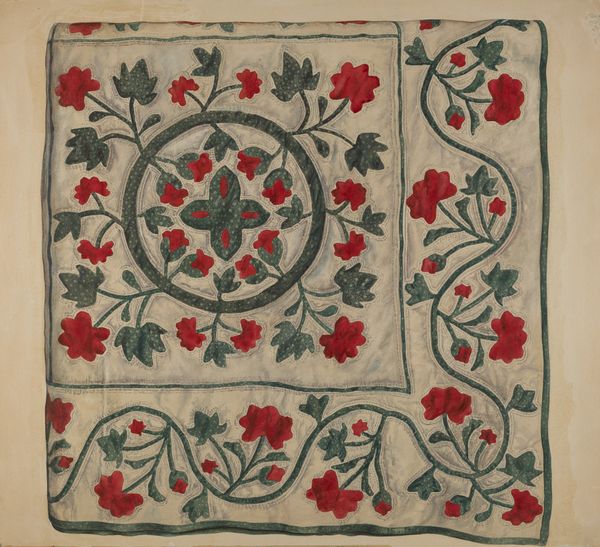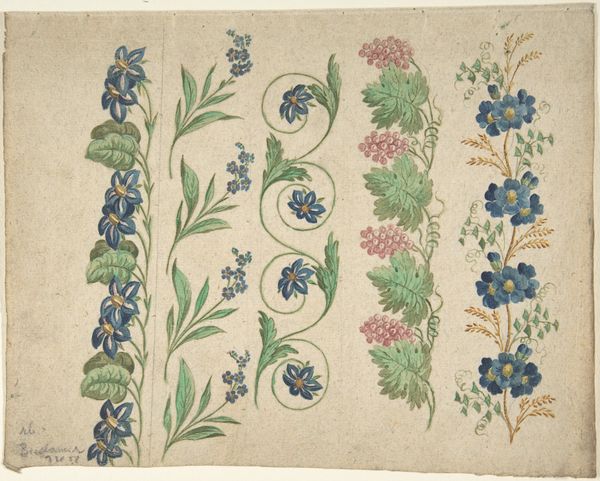
textile
#
naturalistic pattern
#
organic
#
folk-art
#
textile
#
geometric pattern
#
folk-art
#
organic pattern
Dimensions: 88 × 86 in. (223.5 × 218.4 cm)
Copyright: Public Domain
Ernestine Eberhardt Zaumseil, an American artist, made this quilt with cotton in the late nineteenth century. The botanical imagery is full of cultural references and associations. Made during the Victorian era, a time of great social change and industrial expansion, this quilt reflects the growing interest in the natural world, which coincided with women's increasing role in the domestic sphere. Needlework, like painting, was an approved form of artistic expression for women. The branches and vines, meticulously stitched, embody a sense of order and control over nature, a common theme in Victorian art and design. Zaumseil's choice of materials and techniques speaks to the gendered division of labor and the social expectations placed on women during this period. To fully understand this artwork, we could research the historical context of quilting in America, examining patterns, and the role of women in shaping artistic traditions. The meaning of this quilt is contingent on its historical context and the social forces that influenced its creation.
Comments
No comments
Be the first to comment and join the conversation on the ultimate creative platform.
